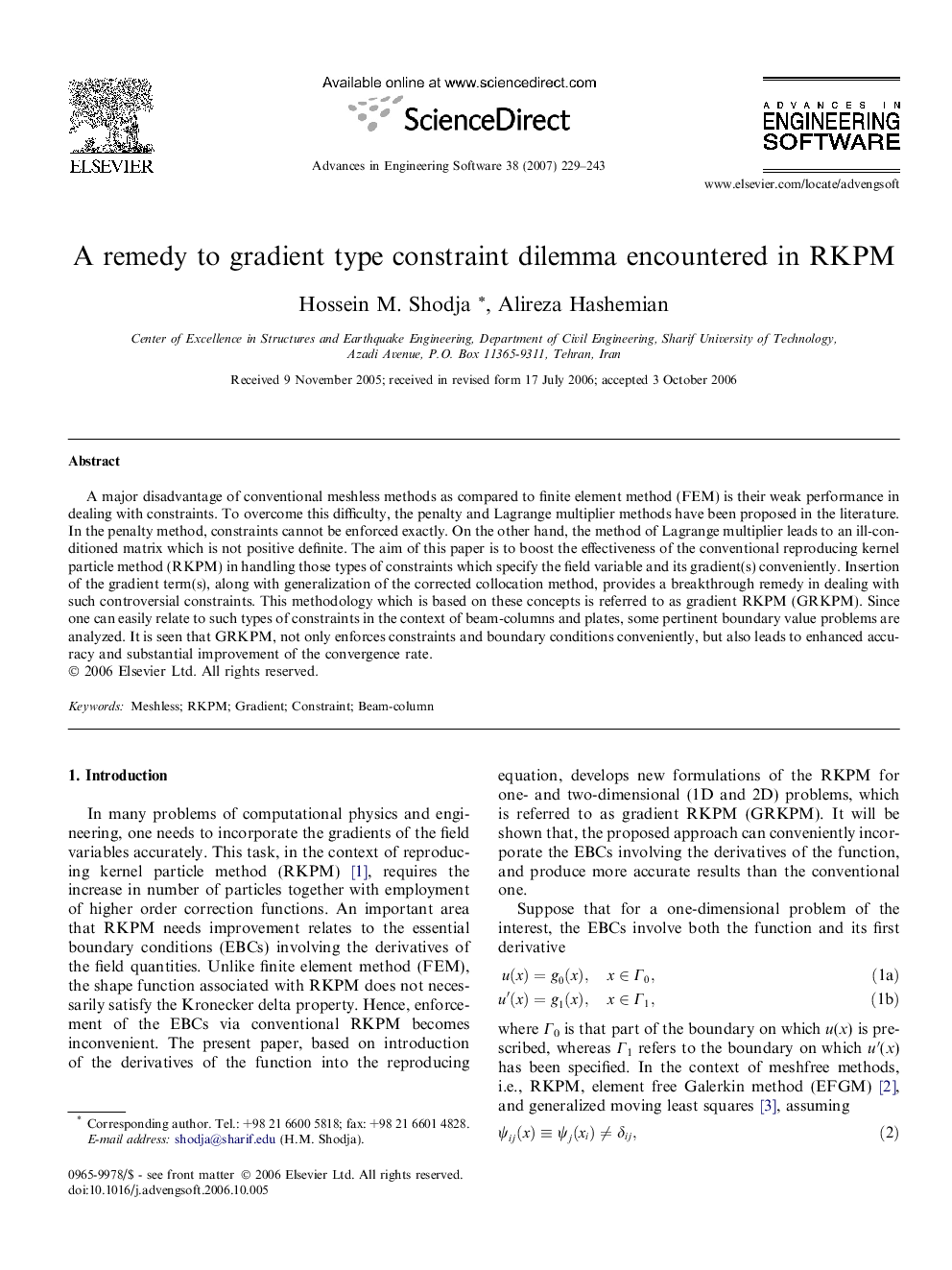| Article ID | Journal | Published Year | Pages | File Type |
|---|---|---|---|---|
| 567826 | Advances in Engineering Software | 2007 | 15 Pages |
A major disadvantage of conventional meshless methods as compared to finite element method (FEM) is their weak performance in dealing with constraints. To overcome this difficulty, the penalty and Lagrange multiplier methods have been proposed in the literature. In the penalty method, constraints cannot be enforced exactly. On the other hand, the method of Lagrange multiplier leads to an ill-conditioned matrix which is not positive definite. The aim of this paper is to boost the effectiveness of the conventional reproducing kernel particle method (RKPM) in handling those types of constraints which specify the field variable and its gradient(s) conveniently. Insertion of the gradient term(s), along with generalization of the corrected collocation method, provides a breakthrough remedy in dealing with such controversial constraints. This methodology which is based on these concepts is referred to as gradient RKPM (GRKPM). Since one can easily relate to such types of constraints in the context of beam-columns and plates, some pertinent boundary value problems are analyzed. It is seen that GRKPM, not only enforces constraints and boundary conditions conveniently, but also leads to enhanced accuracy and substantial improvement of the convergence rate.
